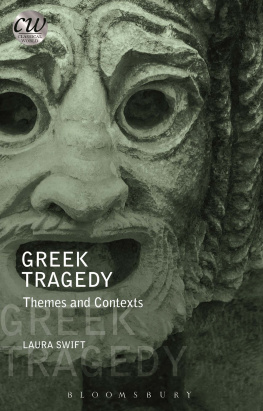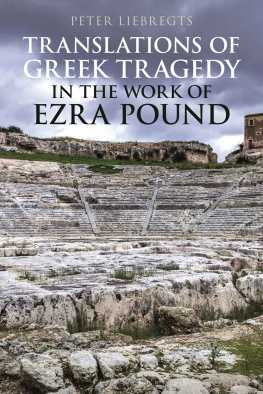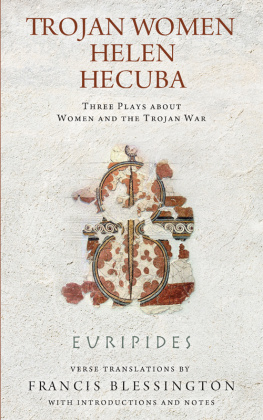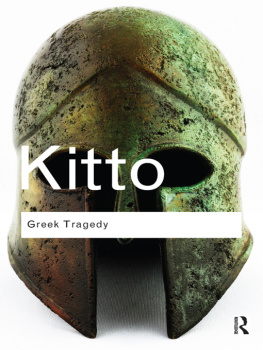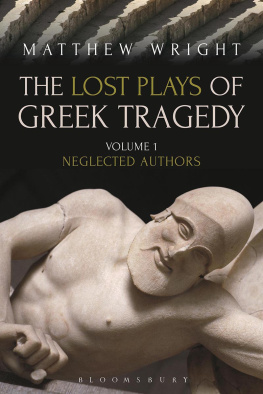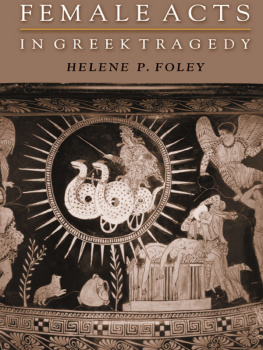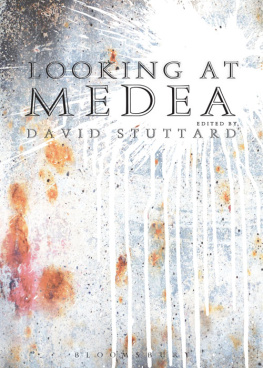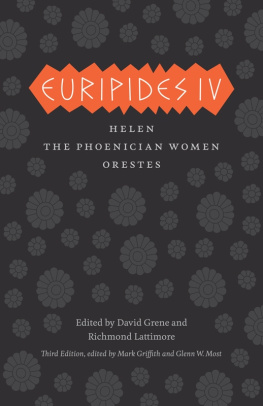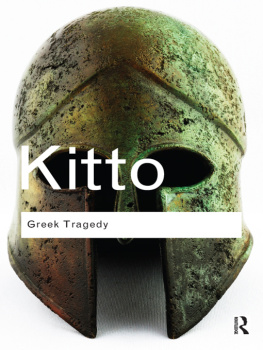Irish Appropriation Of Greek Tragedy
by Brian Arkins
A Carysfort Press Book Carysfort Press Book
First published as a paperback in Ireland in 2009 by
Carysfort Press Ltd
58 Woodfield
Scholarstown Road
Dublin 16
Ireland
ISBN 978-1-9045505-47-1
2010 Copyright remains with the authors.
Originally Typeset by Carysfort Press Ltd
Cover design by eprint
Digitised by Green Lamp Media
This publication was grant-aided by the Publication Fund of the National University of Ireland, Galway
This book is published with the financial assistance of The Arts Council (An Chomhairle Ealaon) Dublin, Ireland
For Anthony Roche
viro docto, amico caro
Table of Contents
1 | A Brief Reading Of Greek Tragedy
1
Greek tragedy Soon after Athens, in conjunction with other Greek states such as Sparta, defeated the forces of the Persian Empire in the period 490-79 BC, the city came to control the Aegean Sea with its numerous islands as an imperial power. The Athenian Empire embraced some 150 Greek communities, mainly in the Aegean, who paid annual tribute of money to Athens (a few states provided ships); the efficient silver mines at Laurion near Athens were also a major source of money. Some of this money went to finance artistic projects: while public money paid for the very expensive Parthenon, the private money of rich citizens paid for the staging of tragedies and comedies.
The acquisition of the Athenian Empire went hand in hand with a major political upheaval in Athens about the year 460 BC. The existing democracy that had been established by Cleisthenes in the late sixth century now became much more radical. All adult males who were citizens at birth were members of the Assembly (Ekklesia ), and could attend its meetings; it is estimated that 6000 regularly did so. The Assembly exercised executive power over all political, financial, administrative, and legislative matters, as well as electing and dismissing magistrates such as the military strategoi and the civil archontes. The members of the Council of 500 (Boute), which prepared business for the Assembly, were elected by lot. Pay was introduced for magistrates, members of the Council, and jurymen serving in the law courts. This was a further radical move: Pay allowed all citizens, even the poorest, to perform time-consuming public tasks which they would otherwise not have had the leisure to fulfil, and thereby gave them a share in executive power.
Other Greek states, notably Sparta and Corinth, viewed Athenian imperialism with suspicion: Thucydides (1.23) explains that What made war inevitable was the growth of Athenian power and the fear which this caused in Sparta (more specifically, Spartas ally Corinth was uneasy at Athenian expansion). So Sparta went to war with Athens for much of the fifth century after 460 BC: the First Peloponnesian War lasted from 460 to 446 BC, and the Second Peloponnesian War lasted from 431 to 404 BC. The Second Peloponnesian War was a disaster for Athens: it lost the war to Sparta, and its control of the Aegean ended after three quarters of a century, with widespread revolts ensuing; Athens was never to regain the same prominence in Greek affairs. The sheer length of the Peloponnesian War ensured that many of the extant tragedies were composed during it, and that a significant number of them such as Euripides The Trojan Women (415 BC) deal with the theme of war.
2
The circumstances in which Athenian tragedies were performed were different in virtually every respect from those of contemporary theatre. In the modern world, tragedies, like every other form of play, are staged either in the commercial theatre, or in art-house venues, or in amateur productions, and are put on for a run during which they are performed each night (or at matines). But in fifth century Athens, tragedies were staged only during brief festivals of the god Dionysus, and will have taken place from early morning until about midday. The festivals in Athens were the Great Dionysia in March-April (the time when the god died and rose again), and the Lenaia (feast of the wine-vats) in January-February; the rural Dionysia took place in December in the 140 or so localities in Attica. The tragedies in Athens were staged in the theatre of Dionysus or the southern slopes of the Acropolis, which was a tiered semi-circular construction with excellent acoustics.
Tragedies were therefore part of a religious festival that also had distinct political aspects: The three playwrights were in competition with each other, as befitted a society that was intensely agonistic, and there were first, second, and third prizes. Aeschylus won thirteen first prizes, Sophocles twenty-four, and Euripides four. The production of a fifth century tragedy was a unique event, and it was not until 387 BC that an old play was restaged.
The number of actors in Athenian tragedy was much more circumscribed than in the modern theatre. Aeschylus introduced a second actor and Sophocles a third, that being the maximum allowed. All the actors, who were citizens, were male, so that female parts were played by men. The leading actor (who was paid and competed for a prize) needed to be a skilled solo singer, and will have played a major part in plays: so in Sophocles King Oedipus , the first actor played Oedipus, and the other two played seven parts between them. Actors wore masks (Dionysus was the god of the mask), which meant that changes of facial expression were impossible and that the voice became paramount; Yeats held that Greek acting did all but everything with the voice. Actors also wore a head-dress, a long robe, and boots (kothornoi), so that they appeared to be remote impressive figures, an example of Brechts alienation effect.
The Chorus, which consisted of twelve (later fifteen members), was an essential part of fifth century tragedy. The fact that they danced and sang ensured that they were both linked to cultic practice, and were able to provide great entertainment. While the Chorus may not always have revealed their position, their major function was to provide a collective response to what happened in the play, but they express very often the experience of the excluded, the oppressed, and the vulnerable. Indeed Yeats uses a type of Chorus in The Shadowy Waters (sailors) and in Deirdre (musicians). As time went on, the importance of the Chorus lessened: in Aeschylus, the Chorus takes up about half the play, in Euripides about a quarter.
There was a large attendance at tragedies in fifth century Athens, probably about 15,000, and poor people may have been given a grant to attend from the Theoric fund; the amount of money involved was small, but was a powerful symbol of Athenian commitment to democracy. The bulk of the attendance consisted of adult male citizens, but foreigners and resident aliens (metics) also attended. Whether women attended is a hotly contested issue; the answer is that we do not know.
All in all, the tragedies of fifth century Athens were an integral part of the life of the community, the notion of art for arts sake not being found before the Hellenistic period (321-31 BC). But it is striking that, while those tragedies may affirm the status quo in their society, they also consistently problematize important issues like war, feminism, and religion; as Croally says, tragedy questions ideology. Hence the Athenians deconstructed their own society before anyone else did. Which may help to explain the perennial popularity of Aeschylus, Sophocles, and Euripides, copies of whose plays were placed in the state depositary at Athens in the 330s BC.
3
Another way in which Athenian tragedy of the fifth century BC differed to a significant degree from modern theatre is in its subject-matter, myth. In structuralist terms, mythology functions as a system of signs that imposes order on human experience and especially on conflict; in symbolist theory, myth represents structures considered to be universal, to be archetypes. Either way, these stories of Greek mythology called by Wallace Stevens the greatest piece of fiction remain perennially fascinating.
Next page

